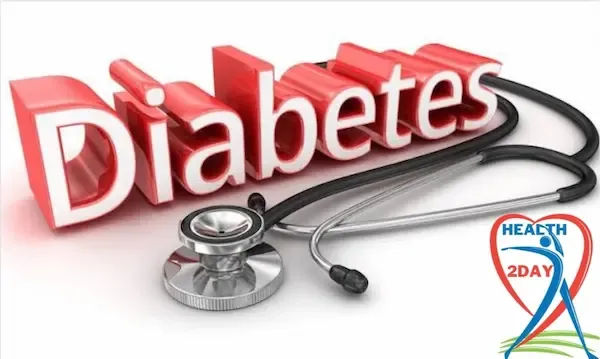Is the keto diet beneficial for diabetes?
There is evidence that carbohydrate restriction can improve blood sugar control in Type 2 diabetics. However, it is unclear whether a more restrictive, ketogenic approach is beneficial or sustainable in the long run.
According to research, a low-carbohydrate diet improves blood sugar and hemoglobin A1C (HbA1C or A1C) — a blood test that measures your blood sugar control over the previous three months. A low-carb diet, for example, was found to be more effective than a low-fat diet at controlling blood sugar and lowering A1C in one study.
However, it's important to note that these studies focused on low-carb diets rather than ketogenic diets. And keto diets are notoriously difficult to maintain over time.
In fact, two large-scale studies in people with Type 2 diabetes compared a more restrictive keto diet to a more moderate low-carbohydrate diet.
Both studies discovered that a higher carbohydrate restriction resulted in better blood sugar control in the short term for 3 months.
However, these results were not sustained over time (12 months).
So, while keto diets may initially result in weight loss and blood sugar improvement, it's unclear whether there is any long-term benefit.
It's important to know the difference between Ketoacidosis and Ketosis
If you have diabetes, you should know the difference between nutritional ketosis and ketoacidosis. Ketones are involved in both.
Ketoacidosis, on the other hand, is a dangerous condition that occurs when your body does not produce enough insulin and ketones accumulate excessively.
Symptoms include excessive thirst, frequent urination, confusion, and weakness or fatigue. It affects more type 1 diabetes than type 2 diabetes.
Ketosis is characterized by much lower and safer levels of ketones than ketoacidosis.
In fact, depending on the amount of carbs and protein you consume, this process occurs in everyday life.
For many people with diabetes, this is the state that can lead to weight loss, particularly belly fat, and a lower A1c.
Is Ketogenic Diet Safe If You Have Diabetes?
This is determined by the type of diabetes you have.
In general, people with type 2 who are overweight appear to achieve good results in a safe manner.
If you have type 1 diabetes and want to try the keto diet, you must first consult with your doctor.
You'll need to keep a close eye on your health and look for signs of ketoacidosis. Working closely with your doctor is recommended for either type, as you may need to change your medications.
There are some side effects to the keto diet that you should be aware of:
Hypoglycemia: While the diet can lower A1c levels, it may put you at a higher risk of having too low a blood sugar level, especially if you're also taking diabetes medication.
If you decide to try the keto diet, please notify your doctor or diabetes educator. They can give you advice on how to check your blood sugar, take your medications, and what to do if your blood sugar drops too low.
The diet emphasizes eating a lot of fat, which increases the risk of heart disease.
If you consume too much saturated fat (found in foods such as bacon and butter), your cholesterol, particularly LDL, which is linked to heart disease, may rise.
Diabetes makes you more likely to develop heart disease, so this is a particular concern for diabetics.
Make sure your fats come from healthier sources, such as mono- and polyunsaturated fats found in avocados, nuts, and olive and canola oils. If you do it correctly, your LDL cholesterol and triglyceride levels may decrease.
If you take medication for heart problems, such as high blood pressure, consult your doctor to see if you need to change your dosage.
Nutrient deficiency: Because many foods are off-limits, including some fruits, vegetables, and dairy products, you may be missing out on important nutrients.
Consult with a nutritionist who is familiar with nutritional ketosis to ensure your body gets what it requires.
Problems with the liver and kidneys: These organs help your body process fat and protein. Some experts are concerned that the keto diet will overwork them.
Others believe that if your organs are healthy, you should be fine.
Constipation: If you don't eat foods like whole grains and beans, you may be missing out on important fiber sources.
Gallstones: If you lose weight quickly, you may be more prone to developing gallstones. Some foods, such as those high in fiber and healthy fats, may help you avoid them.
Discuss with your doctor other ways to avoid gallbladder problems.
Why might the keto diet be harmful to diabetics?
Aside from the unpredictability of blood sugar drops, there are concerns that the keto diet may not be beneficial to our overall health in the long run.
More research is needed to examine the long-term effects of a keto diet over years, if not decades.
Furthermore, experts must consider the impact on other health conditions associated with diabetes, such as heart disease.
Some studies show that the keto diet improves markers of heart health, such as cholesterol levels.
However, there are studies that show the opposite effect. According to one meta-analysis, keto diets may increase LDL cholesterol over time, which is a risk factor for heart disease.
When someone reduces their carbohydrate intake, they must increase their fat and protein intake to maintain the same calorie intake.
In addition, high-fat diets are not recommended for heart health in general.
Another thing to consider is that a high-fat diet, such as the keto diet, may have a negative impact on how our bodies process carbs. In one study, people who ate a high-fat diet for only two days were compared to those who ate a regular diet.
They also discovered that those on a high-fat diet had significantly higher blood sugar spikes when they ate carbs after the 2-day period. Additional research has linked high-fat diets to abnormal glucose processing in the body.
Overall, it's critical to consider the keto diet's long-term effects. When someone drastically reduces their carbohydrate intake, their blood sugars will undoubtedly improve.
High blood sugar, on the other hand, is a symptom of diabetes. Diabetes is caused by the body's abnormal carbohydrate processing. More research is needed to determine whether the keto diet aids or hinders this process.
Summary
Before beginning the keto diet, consult with your doctor.
This way of eating can help improve symptoms and reduce the need for medication in some people with diabetes, particularly those who need to lose weight.
However, for some people, the keto diet may worsen their diabetes.
You'll want to be cautious when you come off of it; reintroducing carbs all at once can cause blood sugar spikes and weight gain.
Starting slowly with carbs high in protein and fiber is your best bet.
Diabetes patients may benefit from the keto diet in terms of blood sugar control and weight loss.
However, studies have not consistently demonstrated that these effects last over time.
And there's still a lot we don't know about the keto diet's long-term effects.
Dietary changes, on the other hand, can be a powerful tool in the management of diabetes.
A more moderate carbohydrate reduction may be just as beneficial, if not more sustainable in the long run.
It's a good idea to talk to your provider about any potential dietary changes so they can help you make it a safe part of your diabetes treatment plan.





